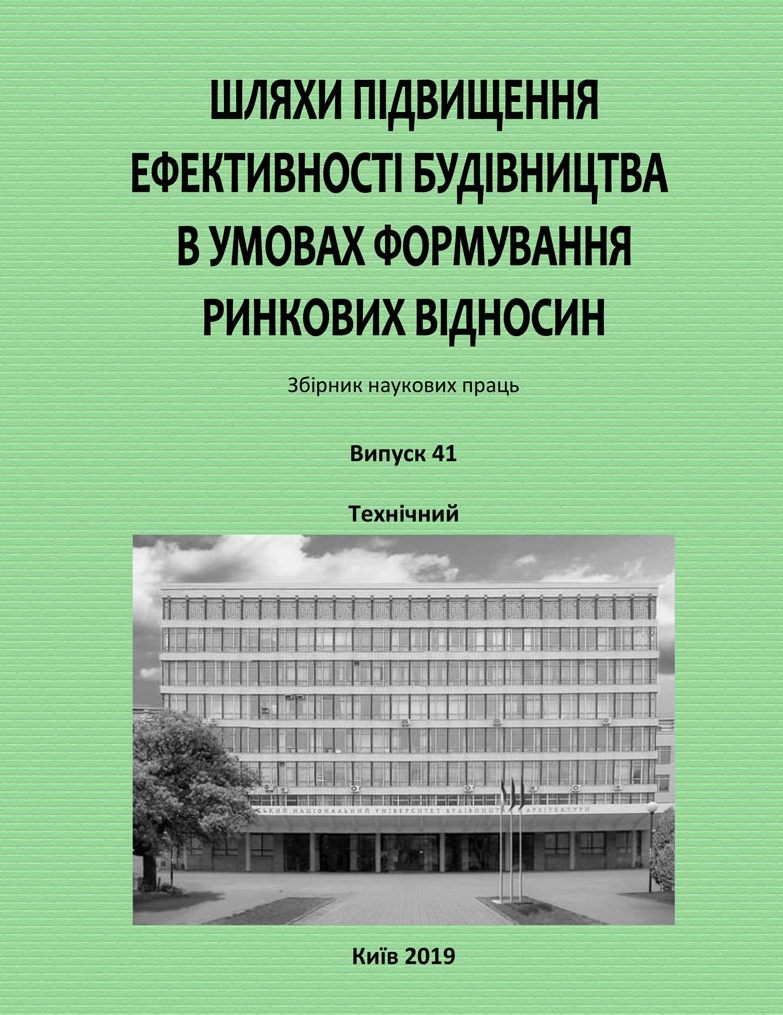Construction quality management
DOI:
https://doi.org/10.32347/2707-501x.2019.41.46-53Keywords:
quality, management, construction, construction organizations, project management, quality management system, building control, European norms, quality standards.Abstract
Improving the quality of construction products is a natural process that reflects the objective trend in the development of social production. It is due to the essence of market relations, considering quality as the main measure in the general perception of supply. A significant impetus to this process is given by quality management, which directs participants in the construction industry to create products that meet all the requirements.
The right choice of management methods and tools enables successful implementation of projects, which in turn directly affects their competitiveness. The quality of construction products, as well as the quality of building (finishing) materials, as well as construction technologies, including design and other engineering solutions, should be much higher than the average formed. The most important function of quality management of construction products is to encourage construction industry participants to improve the quality characteristics of the products created. The managerial influence not only promotes high quality construction, but also adequately responds to all developments in the investment and construction sphere: organizational, structural, financial, technical and other changes.
The article considers such a parameter of the project as quality, compares the experience of implementing the quality management system in domestic construction organizations and construction organizations of some foreign countries. The focus is on the most common methods and programs aimed at improving product quality.
A study of domestic and foreign quality management and control systems has shown that the quality management and control system in foreign countries is organized more clearly and effectively than in our country, and certainly positive experience should be taken into service by our construction (and not only) companies, which is only to increase their competitiveness. As a result, the winners will be all participants of the construction project: the consumer of the end result, the customer-developer, investor, insurance companies, authorities and others.
References
Verhoglyadova, N.I (2011), “Upravlinnya yakistyu produktsiyi budivelʹnoho pidpryyemstva yak faktor zabezpechennya yoho konkurentospromozhnosti” available at: http://nbuv.gov.ua/UJRN/Vchtei_2011_3_46. (accessed 20 June 2019)
Ishikawa, K. (1988), Yaponskiye metody upravleniya kachestvom [Japanese methods of quality management], Economics, Moscow [in Russia]
Harrington, J. (1990), Upravleniye kachestvom v amerikans'kikh korporatsiyakh [Quality Management in American Corporations], Economics, Moscow [in Russia]
Chuprina, Yu. A. (2011), “Advanced method of managing the workplace at the office”, Management of Development of Complex Systems, 7, 135-137.
Arditi, D., & Gunaydin, H. M. (1997), Total quality management in the construction process. International Journal of Project Management, 15, 4, 235-243 [in Great Britain]
Ashokkumar, D. (2014), “Study of quality management in construction industry”, International Journal of Innovative Research in Science Engineering and Technology, 3, Special Issue 1, 36-43
Kazaz, A., & Birgonul, M. T. (2005), “Determination of quality level in mass housing projects in Turkey”, Journal of Construction Engineering and Management, 131(2), 195-202.
Czajkowska A., & Kadłubek M. (2015), “Management of factors affecting quality of processes in construction enterprises”, Polish journal of management studies, 11, 28-38.
Downloads
How to Cite
Issue
Section
License
Copyright (c) 2020 О. Yemelianova, V. Tytok

This work is licensed under a Creative Commons Attribution 4.0 International License.
Authors who publish with this journal agree to the following terms:
- Authors retain copyright and grant the journal right of first publication with the work simultaneously licensed under a Creative Commons Attribution License that allows others to share the work with an acknowledgement of the work's authorship and initial publication in this journal.
- Authors are able to enter into separate, additional contractual arrangements for the non-exclusive distribution of the journal's published version of the work (e.g., post it to an institutional repository or publish it in a book), with an acknowledgement of its initial publication in this journal.
- Authors are permitted and encouraged to post their work online (e.g., in institutional repositories or on their website) prior to and during the submission process, as it can lead to productive exchanges, as well as earlier and greater citation of published work (See The Effect of Open Access).

